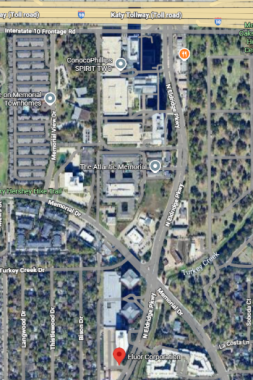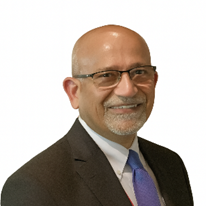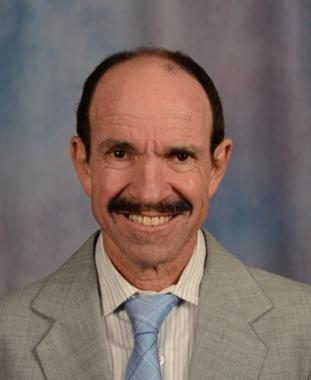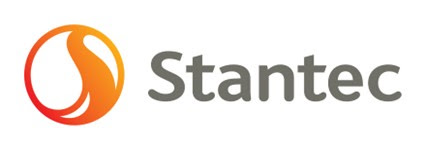Join the South Texas Section for our monthly dinner meeting. This event is on the topic of Useful Rules of Thumb in Distillation. We will also have a workshop on the Ammonia & Methanol: Decarbonization Options Today and Tomorrow. This event will be In-Person only with no virtual web casting option available.
The event will be held at Fluor Enterprises office (737 N Eldridge Pkwy, Houston, TX 77079) on the 1st Floor in the Trinity Room. The is free parking in the garage behind the office building.

Agenda
- 5:00 pm -6:00 pm Workshop - Ammonia & Methanol: Decarbonization Options Today and Tomorrow
- 6:00 pm - 7:00 pm Dinner
- 7:00 pm - 7:15 pm Announcements
- 7:15 - 7:30 PM Awards
- 7:30 pm - 8:30 pm Keynote Presentation - Useful Rules of Thumb in Distillation
Dinner Registration
Workshop (1 PDH by STS)
Topic
Ammonia & Methanol: Decarbonization Options Today and Tomorrow
Abstract
Ammonia and methanol remain essential to global fertilizer and chemical production—and are increasingly central to clean-energy strategies. Decarbonizing these platforms, especially legacy facilities not designed initially with carbon constraints, presents complex technical and economic challenges. This session will examine practical decarbonization pathways through case studies and a high-level technology overview. Topics include strategies for partial and complete decarbonization of existing plants, as well as new-build options such as autothermal reforming (ATR) and partial oxidation (POx) configurations for low-carbon production. Tailored for a multidisciplinary engineering audience, the presentation offers a clear perspective on what’s achievable today, what’s emerging, and where key hurdles remain.
About the Speaker

VK Arora, PE, is a licensed professional engineer in Texas with over four decades of experience in petrochemical, refining, and syngas technologies. A chemical engineering graduate from IIT Delhi, he has contributed to over 50 ammonia and methanol plant revamps worldwide, as well as feasibility studies and significant project developments in areas such as PDH, Acrylic acid, low-carbon ammonia, methanol, and integrated carbon capture. He holds three patents related to ammonia process improvements and has held leading roles at Lummus Technology, KBR, SABIC, Reliance, Technip, and KPI Inc. He remains focused on practical solutions, knowledge sharing, and advancing decarbonization efforts across the industry.
Keynote Presentation (1 PDH by STS)
Topic
Useful Rules of Thumb in Distillation
Abstract
In almost every troubleshooting assignment, it is desirable to solve a problem as fast as possible with the least expense. Detailed analysis takes detailed study and rigorous calculations, which can delay the diagnosis and solution by several months. This is where the rules of thumb become invaluable. They can quickly direct troubleshooters to the most likely issues and divert resources away from the less likely issues. The deliverable is a quick diagnosis at a shorter time.
Rules of thumb should always be taken for what they are: rough criteria that reflect the experience of practitioners. They are not meant to replace detailed calculations such as those presented in most distillation texts. Their merit is in providing troubleshooters with a preliminary orientation while exploring potential trouble spots. Most of these rules of thumb apply to systems where there is a lot of experience. Many other systems are not covered by these rules.
This presentation highlights common rules of thumb that have been useful to engineers engaged in troubleshooting distillation towers, as well as a few application case studies. Included are rules of thumb for tray and packings flooding, downcomer maximum entrance velocity, trays and packing efficiencies, tray and packing flow regimes, tray channeling, packing distributor liquid head, tray stability factor, tower inlet and outlet velocities..
About the Speaker

Henry Z. Kister is a Fluor Corp. Senior Fellow and Director Fractionation Technology. He has over 35 years’ experience in design, troubleshooting, revamping, field consulting, control and startup of fractionation processes and equipment. He is the author of four books, the distillation equipment chapter in Perry’s Handbook, the distillation chapter in the Kirk-Othmer Encyclopedia of Chemical Technology, and about 150 articles. Kister has taught the IChemE- sponsored “Practical Distillation Technology” course over 570 times in 26 countries, and a recent “Troubleshooting Distillation Controls” course, also sponsored by IChemE. A recipient of several awards, Kister obtained his BE and ME degrees from the University of NSW in Australia. He is a Fellow of IChemE and AIChE, Member of the US National Academy of Engineering, and has been serving on the FRI Technical Advisory and Design Practices Committees for more than 25 years.
The South Texas Section is Grateful to our 2025 Sponsors:
Platnium Sponsors:
Gold Sponsors:


Bronze Sponsors:


- Log in to post comments
